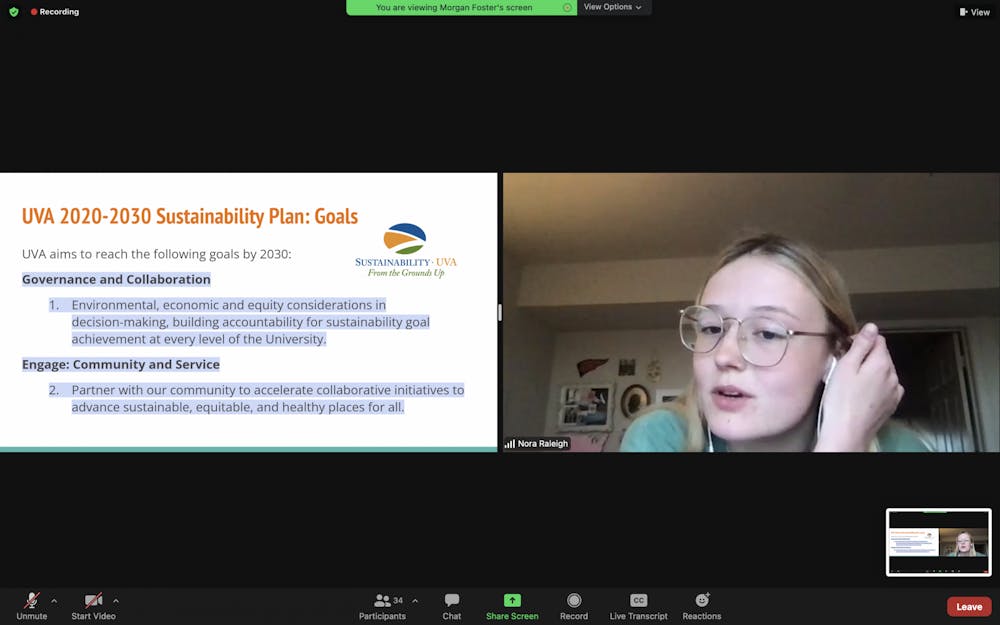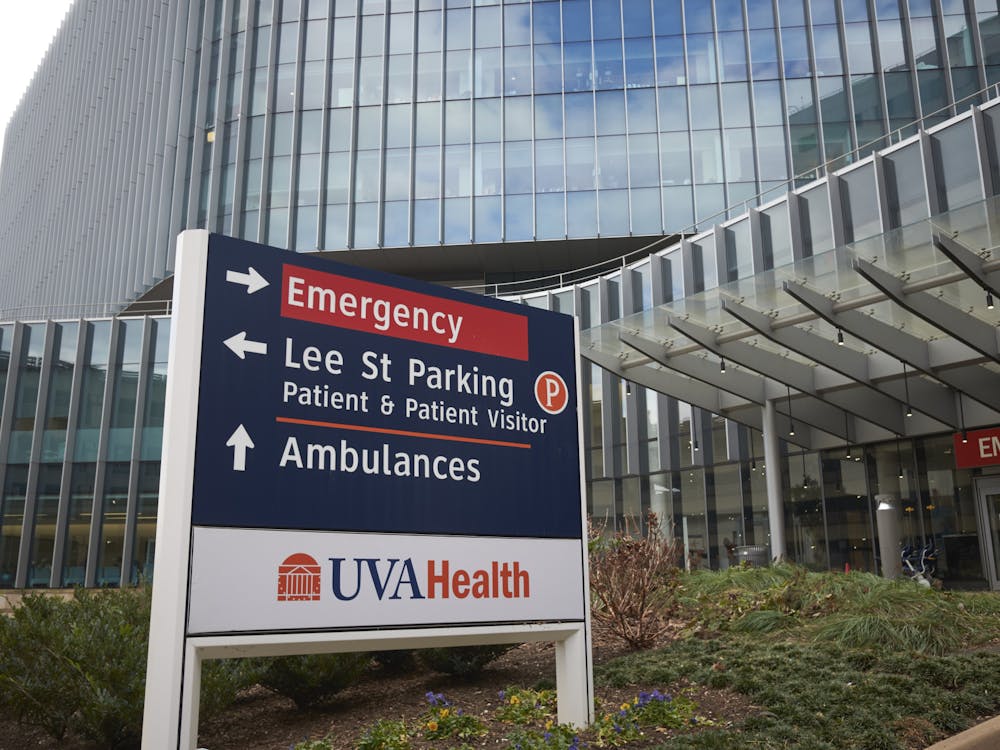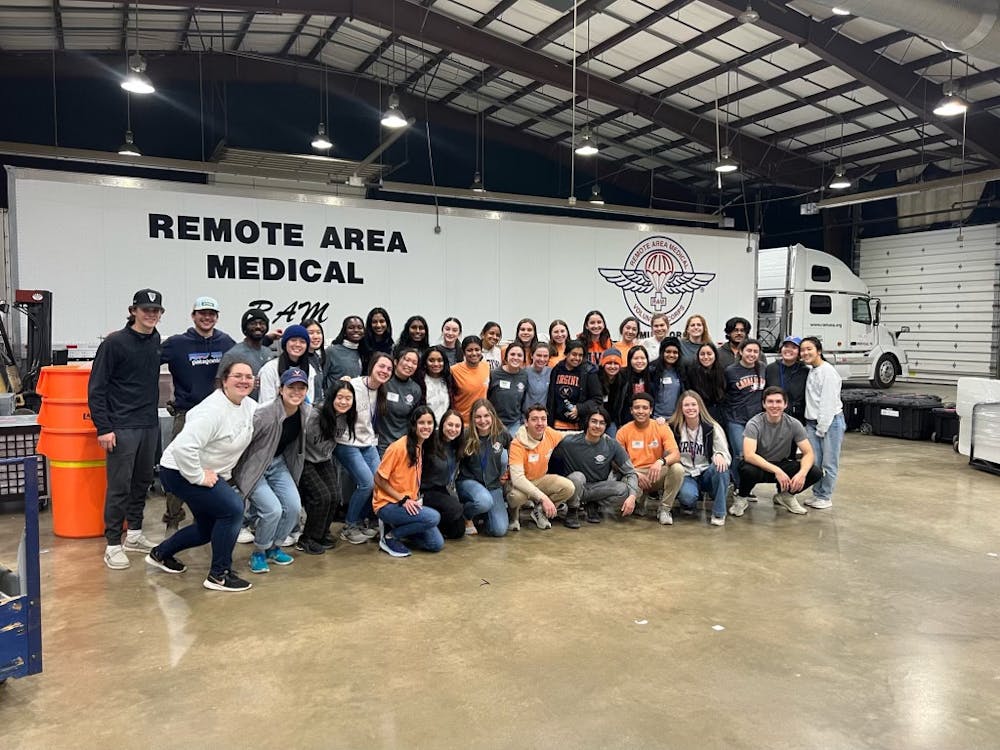The University and the College of William and Mary hosted a webinar Tuesday to discuss plans to become carbon neutral by 2030, in accordance with executive order 77, including the University’s 2030 Sustainability Plan, which began to be implemented starting in June 2021.
The schools hope to balance carbon production with carbon removal so that there is a net zero carbon change. Coupled with a multitude of sustainability goals, a drive toward carbon net neutrality puts the schools in a position to drastically decrease negative impacts on the environment.
The University and William and Mary hosted the joint webinar with the goal of sharing plans for these ambitious goals with their respective student bodies. Sustainability teams at both schools aim to partner in communicating their actions as well as supporting joint infrastructure changes.
During the webinar, interns and student leaders at the University’s office of Sustainability presented a variety of ways in which the University has been working towards the carbon net neutral goal. Then, student leaders from both universities also presented on personal choices students could make to live more sustainably.
Madeline Bertagnolli, senior at William and Mary, presented at the webinar and has been involved with the school’s sustainability journey since her freshman year. Serving as the Greenhouse Gas Student specialist, in particular, put her in a position to execute this event.
“The joint webinar is cool, because I think a lot of students don't know about [what we do],” Bertagnolli said.
To involve students in sustainability efforts, the University hosts an Eco-Leaders program that assigns one or two students to advocate in their individual dorm association councils. First-year College student Emily Horn is an Eco-Leader in her dormitory building and has seen the impacts of climate change and pollution — as discussed in the webinar — first-hand.
Horn said she believes the University’s 2030 Plan is important to addressing these challenges.
“Over time, I was able to see how pollution and climate change [are] affecting the wildlife in nature that I very much love,” Horn said.
The webinar advocated for sustainable practices that lead to less negatively impactful waste — such as compostable items — and decreased waste overall. Examples of these sustainable practices include composting, decreased single use plastics and environmentally friendly production options for products. In the dining halls, plastic-based utensils and cups have been replaced with commercially compostable alternatives.
Jesse Warren, sustainability program manager for buildings and operations of the Office of Sustainability, has focused his career on aiding the University’s sustainability goals through a different angle — building design and re-fitting. By optimizing electrical systems and implementing more sustainable and electrical based heating and cooling, Warren’s team has been able to make University buildings more efficient without complete demolition.
“What I think is most transformational over the decade I've been at U.Va. is the way … we're moving largely to electrification and away from fossil fuels.” Warren said.
Actions taken by both universities have spanned from educational changes to infrastructure changes on University-owned property. In particular, new majors, such as the Environmental Thought and Practice interdisciplinary major, and classes, such as the university seminar, Designing a Carbon Neutral Future, that highlight eco-friendly and sustainable thoughts, practices, and communication have been created to allow for students in all disciplines access to these resources.
The University’s 2030 Sustainability Plan has phases that will take a decade to complete, including reducing waste, adjusting food suppliers and emphasizing sustainability in the classroom. It has four facets: Governance and Collaboration, Engage, Discover, and Steward.
In the context of the 2030 Plan, Tuesday’s webinar was designed to encourage students to individually take initiative in their personal lives to live more sustainably by composting more, reducing consumption, and eating more sustainably. The webinar also encouraged students — like Horn — to get involved with the Office for Sustainability through classes, internships and events.
“In order to preserve any aspect of the planet, we need to be sustainable,” Horn said. “Sustainability impacts everyone in a personal way.”





